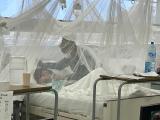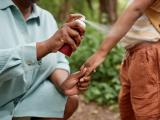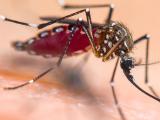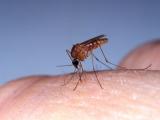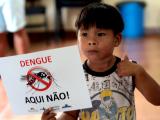Yesterday, Florida voters were divided over whether or not to use genetically modified mosquitoes to squash the population of Aedes aegypti, the bugs that transmit Zika and other viruses, in the lower Keys.
In a non-binding referendum, 58% of voters in Monroe County voted in favor of using the mosquitoes, manufactured by the British company Oxitec. In Key Haven, a neighborhood in the southern Keys (where the bugs would be released next spring), 65% of voters opposed their use.
Despite the need for mosquito control, many are worried that genetically modified bugs pose an unforeseen environmental threat, and early reports on Zika and microcephaly in Brazil erroneously linked the congenital birth defect to genetically modified mosquitoes.
Oxitec's male mosquitos have altered DNA that renders their offspring sterile. The company said an experiment conducted in Piracicaba, Brazil earlier this year reduced local mosquito populations by 82%, and limited local spread of both Zika virus and dengue.
In August, the US Food & Drug Administration (FDA) approved Oxitec's mosquitoes for use, saying that after months of comments from the general public, the mosquitos fell under the category of Finding of No Significant Impact (FONSI).
Ultimately, the Florida Keys Mosquito Control Board will decide if Oxitec's mosquitos will be used next spring. The Board meets on Nov 19, but an agenda has not yet been set, according to the Miami Herald.
Flurry of local Zika cases
In other Zika news, Florida's Department of Health (Florida Health) reported several new non-travel related cases yesterday and today. Florida Health said five Miami-Dade County residents and one out-of-state traveler had Zika today. An investigation is underway to determine where the non-resident contracted the virus.
A case announced yesterday was linked to an ongoing investigation into the Little River area of Miami-Dade County, but active transmission is still contained to North and South Miami Beach, Florida Health said.
Finally there was one new case announced today in a Florida resident who traveled to both Miami and an area outside of Florida with widespread transmission. The location of exposure is unknown.
The cases raise the number of locally acquired Zika cases to 217. There are 143 infections involving pregnant women, but it's unclear how many, if any, were locally acquired.
See also:
Nov 9 Miami Herald story
Jan 19 Oxitec press release
Nov 8 Florida Health update
Nov 9 Florida Health update




